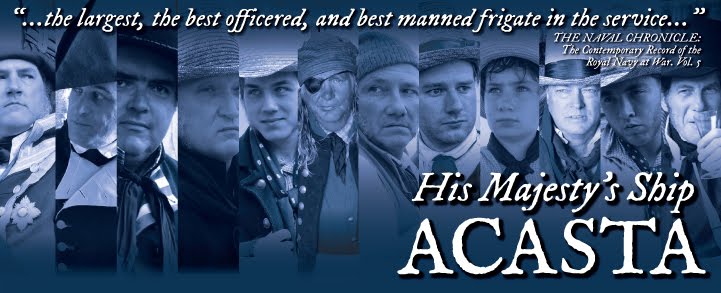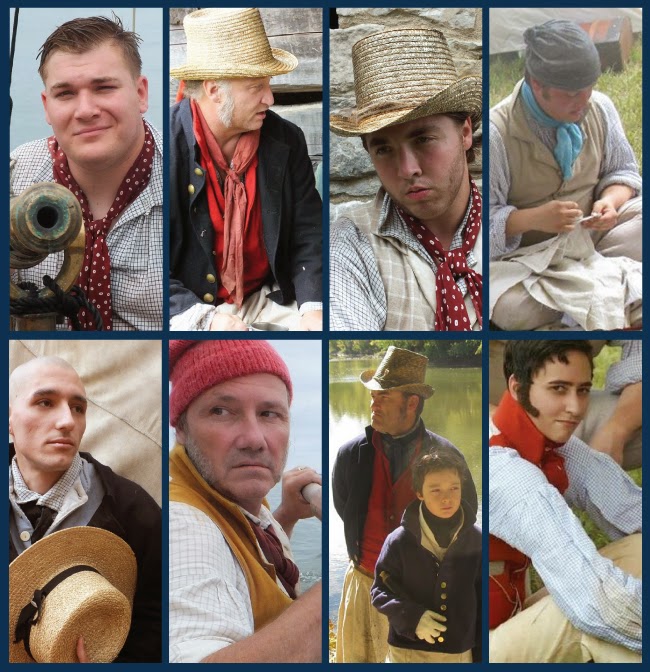
A story in four parts by Tony Gerard.
"De Captain of de Indiaman, he was young, de son of one of de owners or some such ting. His first command. We was on our return, and he do well enough, because he have two good fellows as mates. It come a bad blow, we is all feared, but we come thru it all right, but we is lost from de convoy we travel widt."
"So we go on alone for tree days, when de lookout call he see a sail. We are hopeful is one of the convoy, but soon see she is going de wrong way, but soon she tack to follow us, and now we are feared of her. She follow all de day and gain on us. Dat night we douse all de lights and change course, but when de moon rise we see she is still widt us."
"All night she gain. We is all on deck, cause we is too feared to sleep. As she is almost in pistol shot is a sudden light from her- as if a fellow flash a pan to dry it- and we see her deck is all covered with fierce looking fellows- she is a Spanish pirate!
As soon as is false dawn dey fire a shot across our bow. We have guns to fight dem- but our Captain he strike right away- not even pretend to resist for his honor!
Dey send a boat across. Is filled widt savage looking fellows. Dere mate, he look less like a brute, but you can see evil in his eyes. De captain and mates is dere to meet him, most of de crew on deck also, except for does dat have hided demselves around on de ship.
Right away de pirate mate, I learn later his name is Gasparia, try and speak widt dem- dey cannot speak Spaniard and he have no Dutch, but finally dey both speak English. De pirate ask who is de first mate. When de mate say who he is two of de pirates grab him, and de Gasparia cut off de small finger of his lef hand. Gasparia say is to show dey is serious fellows and he tell de captain to bring his manifest, money and de money he have from his own trade. De second mate and de captain rush to do so. When dey bring de manifest and de money Gasparia look at it and say- "is dis truely all?", den he cut off de mate's ring finger at de middle joint. De mate he plead widt the Captain and de Captain give Gasparia his watch. He say "Is truely all I have". Gaspar say he is just testing. He den go over de manifest and have his crew take what he wish along with all our powder and some of de shot. It take several hours for us to load de goods onto the pirate ship. While is happening dey find one fellow who is hid. Dey trow him over- but he can swim- so den dey shoot at him in de water and make a sport of it until de is dead.
After all dey wish is loaded onto der ship- is still cargo left to de indiaman- de pirate mate say "my Captain wishes to tank you for to give us no great trouble, so you may now go". We is almost faint widt joy- as he go to leave Gasparia turn, as if he just tink of it an ask "have you French among your crew?"
"I have five" de Captain say. He could have said he have none- how would de Spaniard have known? And Gaspara say "bring dem to me". Dey have de five of us to line before him. He ask "how many of you from Normandy?" Jean Claude say "Is only I" . Gaspar say "Very well", den he take a pistol and shoot him in the belly. De pirates den trow him over. He say "bring de others", so we is much feared as dey take us widt dem.
Dey take us and chain us by our foots in de hold of dere ship- is named "Teberone"- and for de first two days we have no food and only a small keg of water dey left widt us when dey chain us in de hold. After dat de cook's mate- he is a kind fellow- de only such among dem- named Pedro, he bring us some biscuit and food scraps. He keep doing dat, but he make sign to us dat we are not to let de other Spaniards know he feed us. Sometimes we catch a rat also.

































